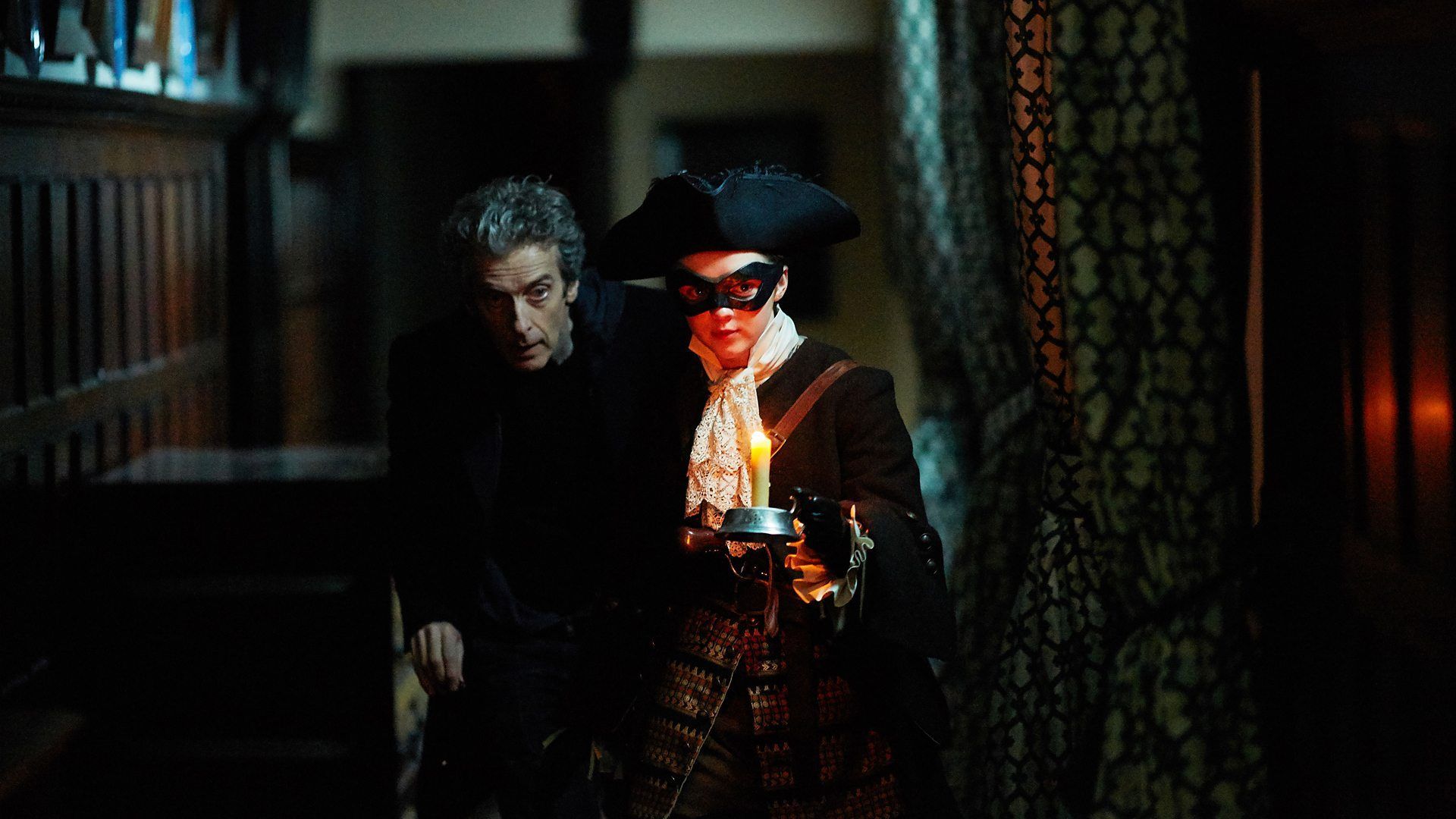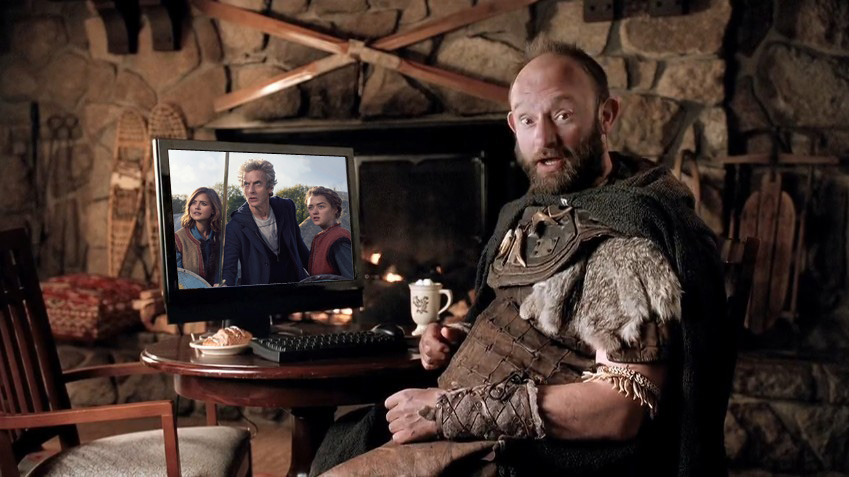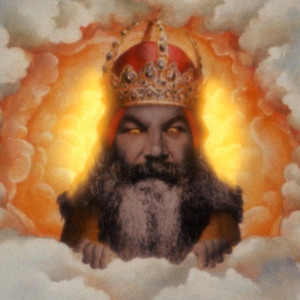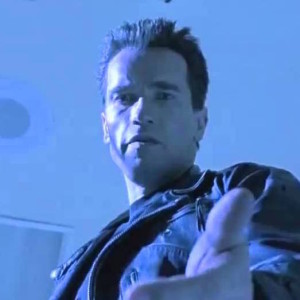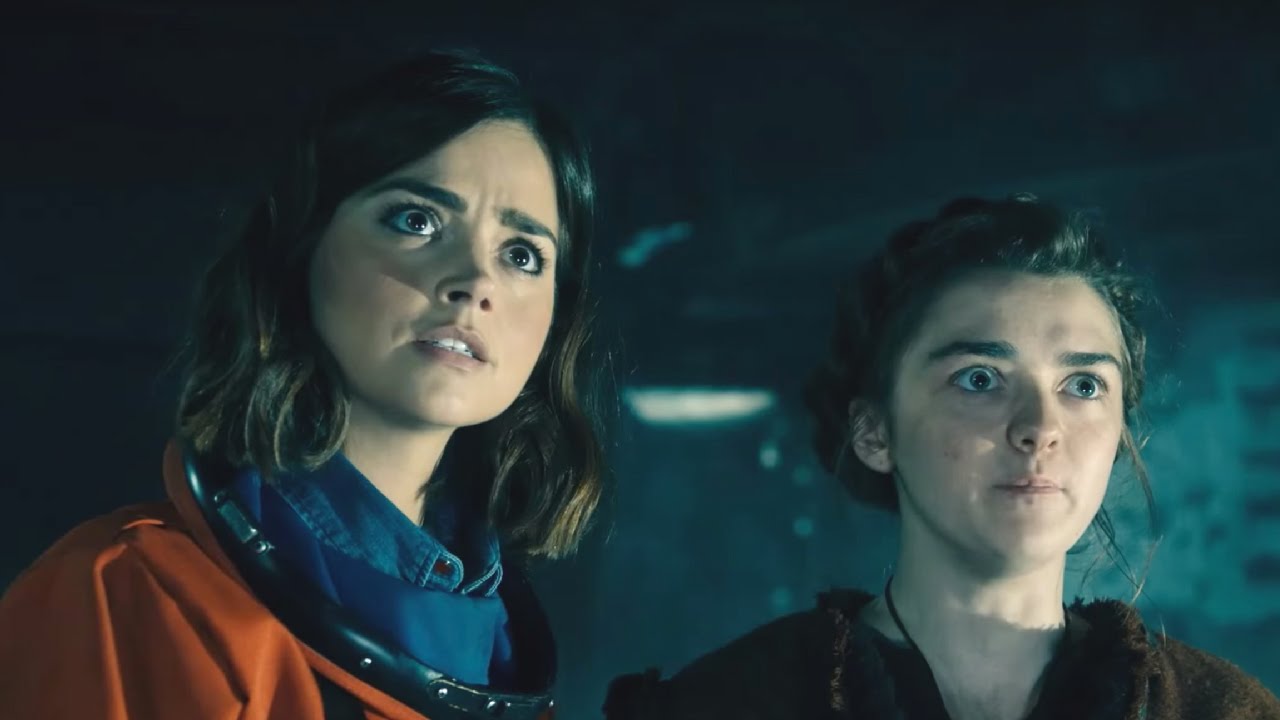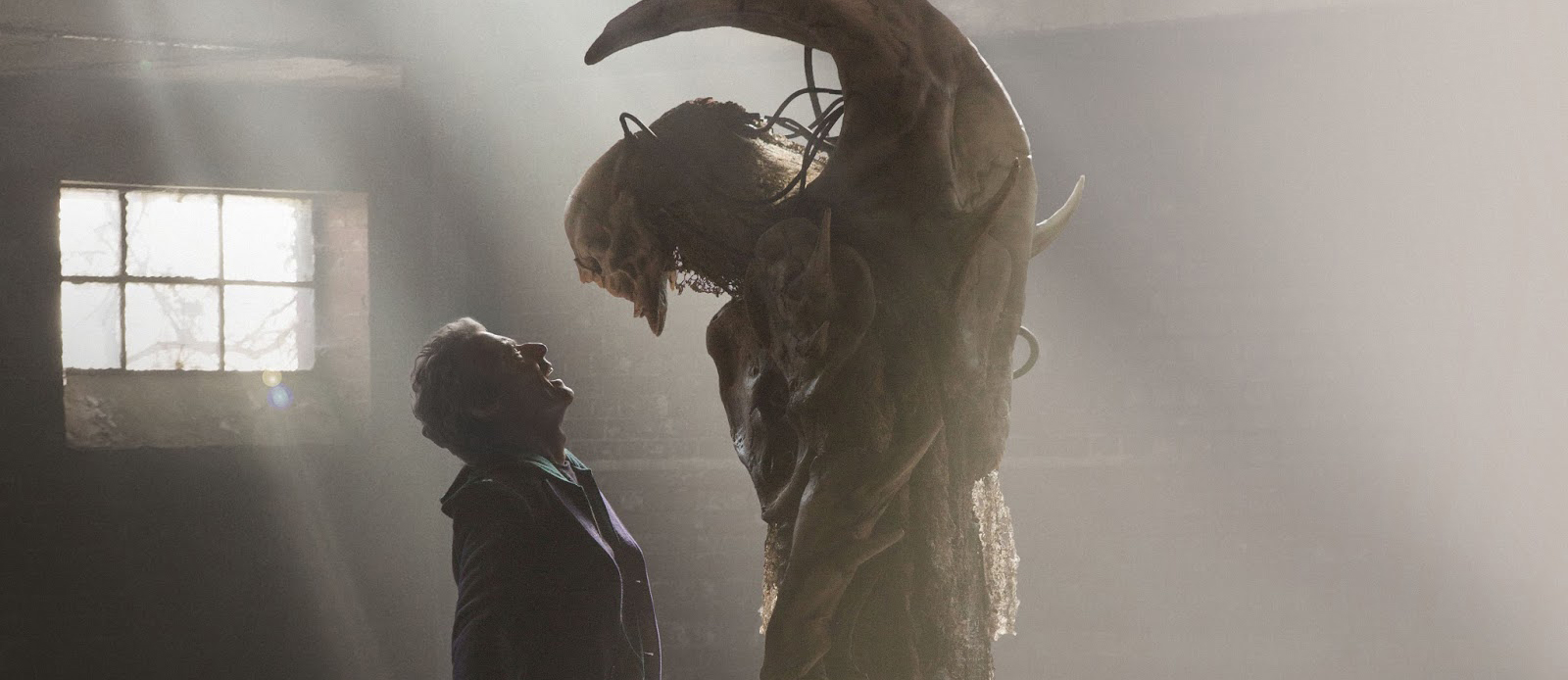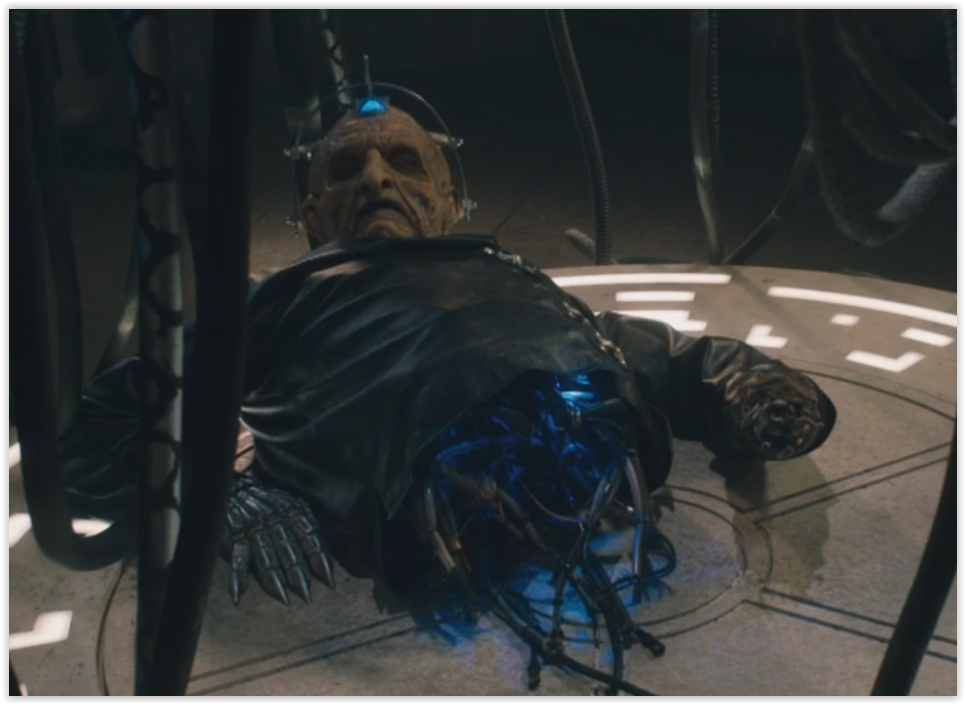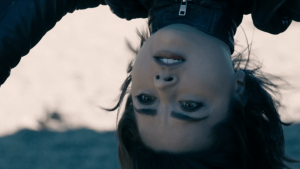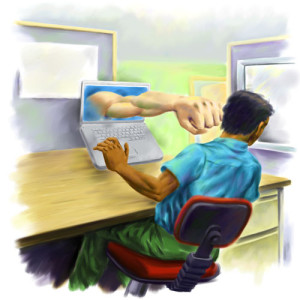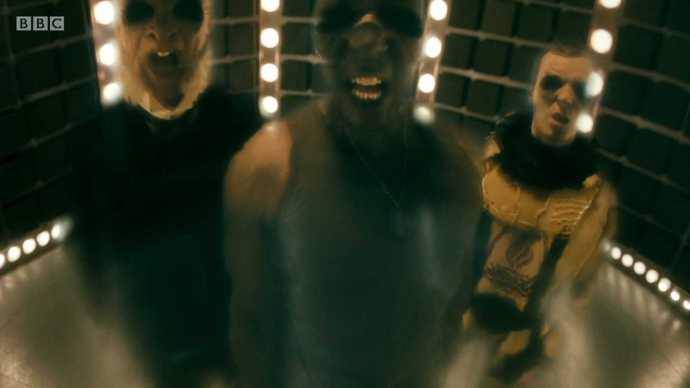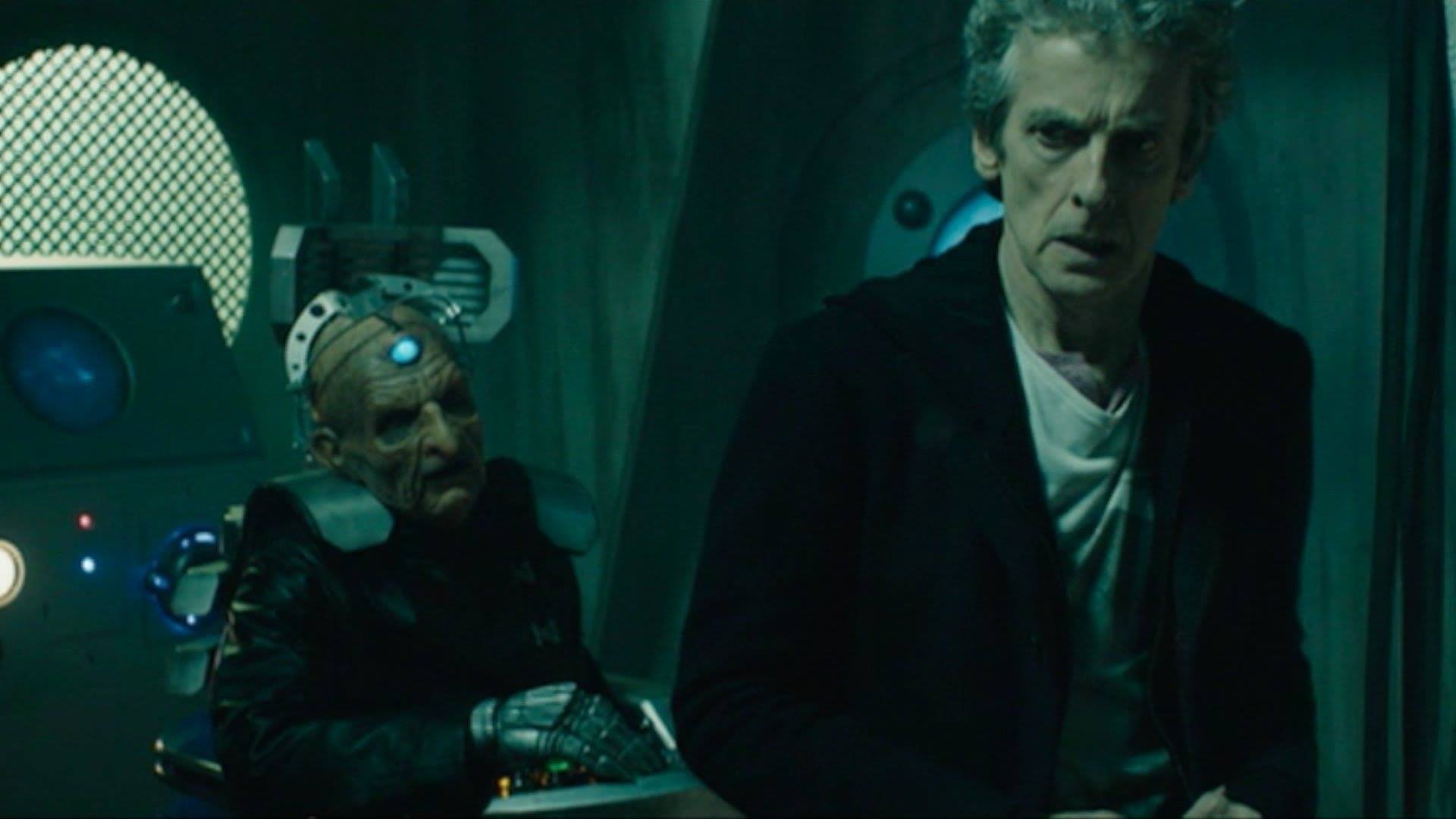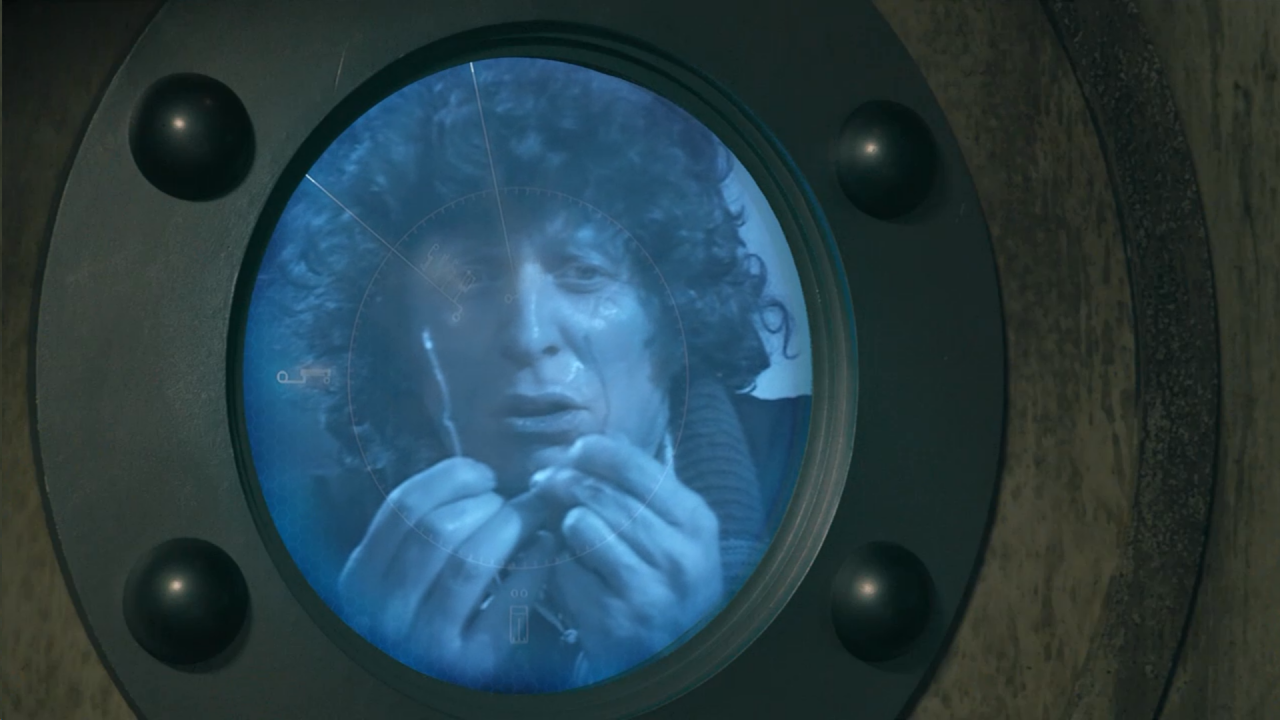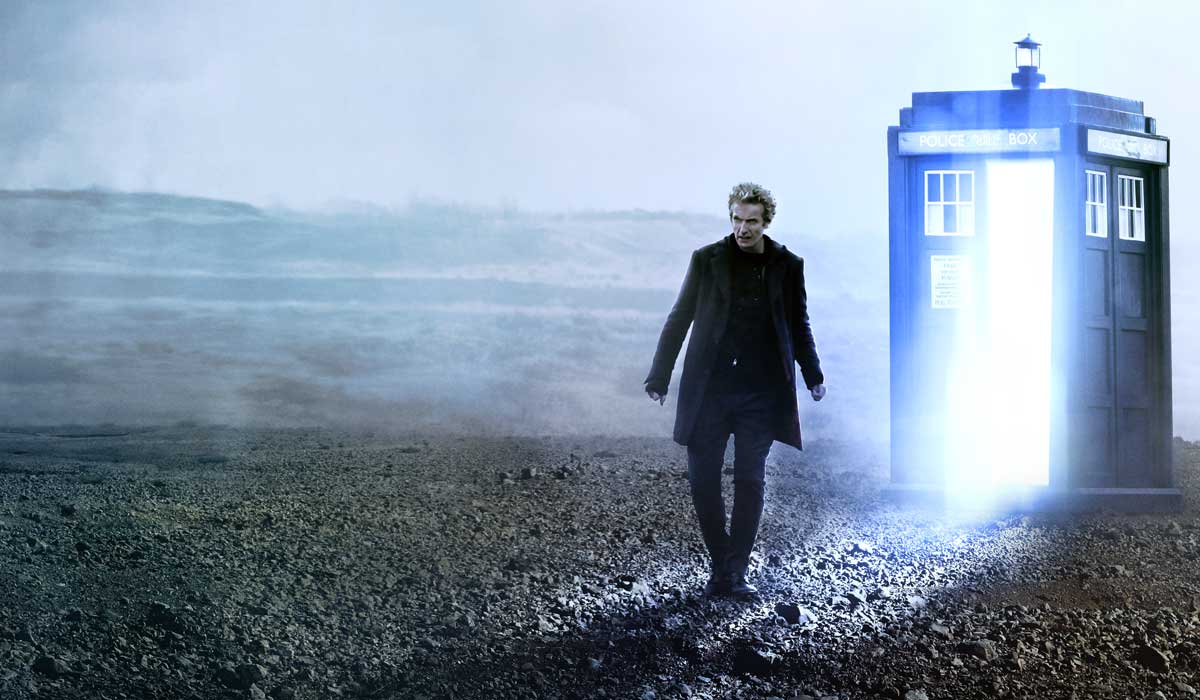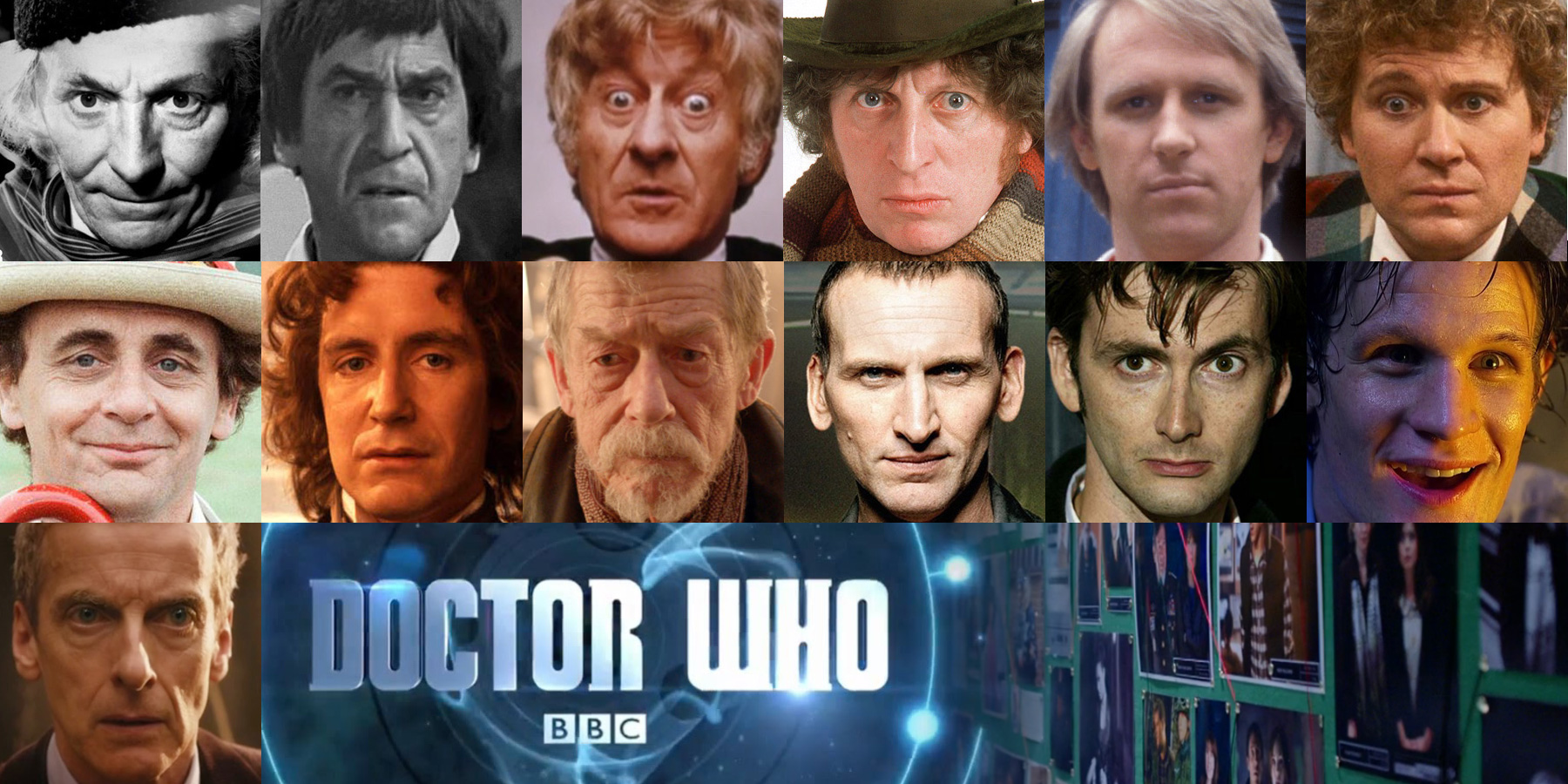Maisie Williams’ performance in “The Woman Who Lived” is testimony to her acting ability. In one week’s time, she was able to take Ashildr through centuries of shifts and changes, and we could feel those in the development of her personality—from the pain and anguish, to her need to shut down emotion, to the disavowal of her own name. I have read criticism that indicated Ashildr’s propensity for storytelling and her headstrong conviction was lost this week. I would disagree. We see her storytelling written out in her journals. She needs the story to remind her of her life. We see her headstrong conviction in nearly every action. Granted it has shifted from the honorable Ashildr of her village, but she remains steadfastly headstrong in her pursuits. And what definitely remains is the ambiguity. Ashildr never was nor will she ever be boxed into a stereotypical gender role. If there was ever a case for Carl Jung‘s anima/animus it is Ashildr. Jung said: “The anima is a personification of all feminine tendencies in a man’s psyche …;” thus, the animus is the personification of all masculine tendencies in a woman.” We begin assuming gender identity and role in childhood, and many of us exhibit our assigned gender in myriad ways throughout our lifetime. But, according to Jung, the suppressed gender is always there, beneath the surface, wanting its time. Ashildr, now Lady Me, expresses both feminine and masculine characteristics somewhat fluidly. The opening sequence places her in a masculine role as highway robber, complete with male voice (how did she perfect that?). Yet it is clear, once the mask and the hat come off, that her feminine characteristics are also still in place. Gender and/or androgyny could be discussed at length based on “The Girl Who Died/The Woman Who Lived.” There will be further allusion to the discussion in this review, but it deserves perhaps, a paper of its own. I find it interesting that her male persona comes forth when she is wearing a mask.
Back to the opening sequence, the Doctor bumbles onto the robbery in progress and pays little mind to the gun that Ashildr, called the Knightmare by the townspeople, wields. There is plenty of humor in the sequence including the Doctor asking to share the robbery, “Isn’t that what robbery is all about?” In the meantime the stage coach takes advantage of the quibbling between Knightmare and Doctor and takes off into the night. The Doctor accuses Knightmare of hiding behind the mask, which is then removed to reveal the woman he granted immortality, who wonders aloud, “What took you so long, old man?” And so begins her begging the Doctor to take her with him, to get her out of the world he abandoned her to, without so much as a primer on the struggles of immortality.
In the Mix
Unprepared for immortality, Ashildr has been clearly affected by the difficulties it represents. She has no spaceship, no means for speedy travel, and living as an immortal bound to the mortal life clearly has disadvantages with which the Doctor is not entirely familiar. Ashildr has become resourceful, wise, manipulative out of necessity, changed her name to Me, and is unhappy. She longs for the ability to get out of her perceived prison. She is searching for the same amulet that the Doctor searches for in hopes that it will open up a portal to a new and better world for herself. She is desperate. Desperation and a headstrong will are not the best of partners.
The library room filled with Lady Me’s personal journals is a visual account of the experiences that occur over centuries of life. And those accounts become poignant as the Doctor reads from the journals, making note of pages that have been torn out (“When things get really bad, I tear the memories out”), and the traumatic experiences that have been part of Lady Me’s transition from innocent to disillusioned and cynical. She blames the Doctor for her misery and seeks to remind him that he is the reason she has become uncaring and addicted to adrenalin producing activities that give her something other than painful memories.
Many of the conversations between the Doctor and Lady Me are of great import. While the two of them hide during a break in, she asks him about Clara, pushes him to respond to the question of how many Claras he has lost. Clara, we heard in the opening sequence, is off taking taekwondo and the Doctor shares that she is usually the person who stops him from ignoring important situations, as every companion did. Lady Me seeks to drive home the point of losing those who are close and, if the Doctor’s expression is indication, she hits the designated nerve.
After getting out of a tight squeeze at the house (literally as they are up the chimney), the Doctor continues his didactic conversation intended to shake Lady Me from her dangerous and disingenuous habits. Lady Me dodges every point with her own well-designed comebacks. While “The Woman Who Lived” is easily one of the best episodes that we have seen, there are quibbles that prove to be minor annoyances. For example, camera shots of hanging posts while the Doctor and Lady Me discuss hanging are superfluous and unnecessary, and may be a distraction instead.
“The Woman Who Lived” is clearly a different Who ballgame. Though there is a “monster” who seeks to harm, the biggest monsters in the room are the two (make that three) lonely hearts of our protagonists. The show’s impact comes through their personal exploration and sharing rather than through sci-fi effect. In fact, the moments that sci-fi comes into play take us out of the drama with a somewhat jarring reminder that a template has been shifted. The deep-seeking tension between the Doctor and Lady Me almost caused me to find it unnecessary to mention that Lady Me was playing both sides: Leandro and the Doctor. Yet mentioning it serves to show that desperate people engage in desperate measures.
Though gender questioning appears to be part of the mix, the script projects Lady Me’s use of feminine wiles if she feels they may be helpful. When she asks the Doctor how she looks, it appears that she has taken the time to present herself as woman, though the effect is lost on the Doctor. He replies that she’s looking “pink” and wonders if she’s coming down with something. And, boom, we are thrown back into a stereotypical gender assignment—woman does what she can to look good for man and man doesn’t notice. This is taken further when Lady Me indicates that she has played Leandro against the Doctor: “I’m looking for a horse to get me out of town. You said no.” She’s not a gold-digger, but an amulet, take me away from this horrible life digger. May the best man win?
Making Points
One of the more poignant conversations between the Doctor and Lady Me is the question of his running away. “I’m stuck here, abandoned by the one man who should know what eternity feels like. . .Do you ever think, or care, what happens after you’ve flown away? I live in the world you leave behind, because you’ve abandoned me to it.” The Doctor comes back by indicating that she owns the “rust” of her heart. And, rightly so, she does. But that does not negate the reflection on his reaction to difficult situations—the running away.
At the Gallows and the Watering Hole
The need to accept personal responsibility is brought home when the villagers are attacked and Ashildr’s original compassion comes through, her horror at the potential death of the defenseless. Lenny the Lion’s true colors are revealed exactly as the Doctor predicted. He makes it clear that he had been using Lady Me the entire time after she callously snuffs out the life of Sam Swift to open the portal. Reality can be a bitter, bitter pill. Faced with no other recourse, Ashildr must share her immortality patch with the deceased to stop the carnage and close the portal. She does this without question. Why is it that it frequently takes a disaster, a death, or destruction to wake a person from their cynical slumber? The joi de vivre that is so evident in Sam Swift rejoining life serves as a powerful lesson for the Doctor to share with Ashildr. They need the mayflies, the ordinary people whose lives appear redundant and boring, people who make mistakes but continue to move forward. They need the mayflies to remind them of the beauty and magic in life. Ashildr doesn’t necessarily buy his diatribe—is this a question of wizened and wise Doctor talking to still young, idealistic, relatively new immortal? Ashildr, however, has a point when she says that someone has to look out for the people the Doctor leaves behind, or abandons as Ashildr puts it.
Back to Life as the Doctor Knows It
Enter RockDoc on the guitar and Clara through the TARDIS door—seeming normalcy in both their lives. The Doctor has missed Clara; Clara has missed the Doctor and is ready for their next adventure. He views a selfie of Clara and a student that shows Ashildr in the background. Yes, she will return. At close we see that the Doctor and Clara bring each other comfort—but based on the Doctor’s long-lived regenerations, how long can this be possible? How long before Clara leaves or dies? How long is it possible for any of us to find comfort in those we care for and love? Life is short; life is fleeting, but the joi de vivre and comfort in the moments with others may very well be worth the briefness of this mortal life.
End Notes
“The Woman Who Lived” was written by Catherine Tregenna (the first female writer for Doctor Who in six years), who has also written for Torchwood. She was faced with a challenge in writing a powerful episode to follow “The Girl Who Died,” and in this writer’s view, she not only rose to the challenge but surpassed it.
The episode was dramatic, yet maintained humorous aspects that served their purpose well. Sam Swift lent a great deal to the gallows scene with his ability to put off the end by doing stand-up comedy—a mirror for life. Frequently we see those in fear or pain cover with humor. But Sam isn’t the only purveyor of comedy. During the opening sequence, the Doctor provides a humorous entrance juxtaposed against the more serious note of the Knightmare. Though he quickly turns his typical, bumbling self from comedian to older teacher/mentor/father figure.
If you let this episode enter your veins, there will be much to take away from the interplay between the characters. This is not your typical sci-fi episode. Ashildr is a perfect example of seeing the world from where we are entangled, rather than as it is. The Doctor knows this. She will be on his heels, however, growing and learning as she travels the vastness of eternity from her mortal to immortal perspective.
